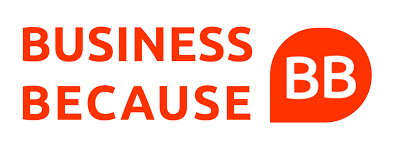boot camp company mba
5 Reasons Why You Need To Network With Companies During Your MBA
| Author: Elle Ayres
To get a good job, it makes sense to network with your future employer. But there’s more to it than that.
 MBA candidates are an ambitious bunch.
MBA candidates are an ambitious bunch.
In a QS survey, over half of MBA applicants polled said in 10 years’ time they saw themselves as director of a large company; just under half set their sights higher at CEO. But how do they set out to achieve this goal?
At MIP Politecnico di Milano, the answer is MBA boot camps.
The boot camps expose students to top Italian and multinational companies so that MBA students can make their names known. Leading companies are brought on-campus at MIP to engage with students directly about the challenges business are currently facing through talks, case study discussion, and business simulations.
That insight into the top echelons of real-life business helps students fulfil their future career ambitions, according to MIP professor Davide Chiaroni, manager of MIP’s Circular Economy boot camp.
Students are enthused by what they learn, Davide explains, as engaging with industry leaders on an MBA helps to bridge the gap between the theory of the academic program and practical, real-life application in the business world.
Here are the five reasons why you need to network with companies during your MBA:
-
Career clarity
Speaking with companies in industries you’re interested in helps you find out what working in that industry is really like.
Davide says that most students choose boot camps in line with their graduation ambitions and that talking to managers working high up in these companies gives students a clearer idea of whether that path is right for them.
“Maybe they’ll realise they want to move in a completely different career direction!” he smiles. “Either way, the experience is useful.” -
Business insight
Interaction with businesses and discussions about current challenges in the market cultivates an understanding of the business world and how it’s connected. This means that when students graduate from their full-time MBA they feel in the loop with what’s going on and who’s involved.
There are two compulsory boot camps at MIP Politecnico di Milano; Finance in Action and Sales Strategy in Action. Then, students can choose from a wealth of elective options. These include, among others; Circular Economy, Big Data Analytics, and Entrepreneurship.
In the Circular Economy boot camp, students build models around how to adapt to digital disruptions and the inclusion of sustainability into businesses, bouncing off what company representatives have told them. -
The chance to make a good impression
Working through business challenges with industry leaders gives MBAs the chance to highlight their approach to problem-solving and consequently make a real impression on possible future employees.
“Even if managers are very well informed with a strong network, they will tend to focus on their peers and competitors so a completely fresh pair of eyes is valuable to them,” Davide explains.
“The exchange of ideas is mutually beneficial and managers will remember those who make impressive contributions.” -
Contacts and connections
Exposure to industry leaders and discussing real business challenges with classmates and top managers solidifies a strong professional network.
MIP selects companies for its boot camps that it has strong working relationships with. This ensures that the company is not just using the opportunity to self-promote and consequently provides insights that are genuinely valuable to MBAs and their futures.
According to Davide, because of the emphasis on informative discussion between companies and students, MBAs can develop a real rapport, asking detailed questions on the business models under the spotlight. -
Practical experience
Gaining a real-life and practical understanding of how companies are tackling issues and adapting to disruption right now bolsters the theory behind business management and is especially useful to MBAs wanting to jump into new industries.
Boot camps are a melting pot, mixing the real-life decision-making process of big companies with the theoretical approach of an MBA program.
MIP Politecnico di Milano specifically chooses companies who are keeping pace with innovations in traditional markets. For example, Enel X; the business development company attached to one of the largest energy companies in Italy.
They also work with startups generated from PoliHub (Politecnico di Milano’s startup incubator) which in 2018 was named the third best university incubator in Europe according to the UBI Global Index.
“The company exposure in the boot camps puts into practice the building blocks of knowledge the MBAs have learned previously on the course about managerial decisions and problem assessment,” Davide concludes.
“It does this in a way that solidifies MBA students’ knowledge and sets them up well for future career moves.”Originally published on






